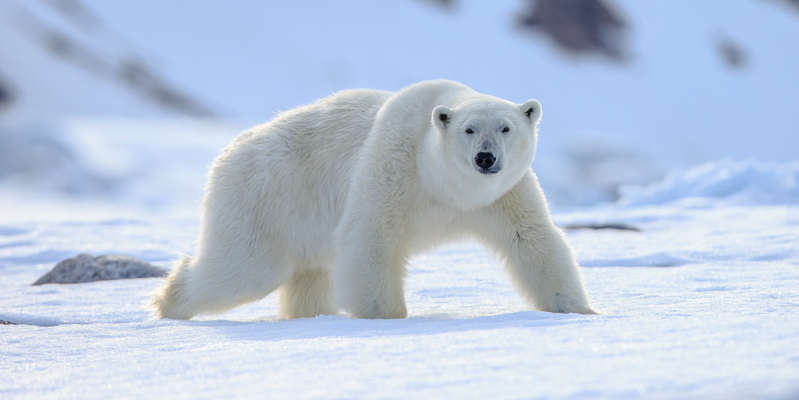
Global warming has led to the emergence of a new species of bears
Climate change has pushed polar bears to the brink of extinction. The habitual habitat is collapsing, the sea ice area is melting steadily. In search of food, the bears are forced to go further and further on land, reports The Daily Mail.
But these changes could lead to the emergence of a new bear species, which will carry the genes of Ursus Maritimus. It is a hybrid of polar bears and grizzly bears.
“This new bear species is more resilient to climate change and better adapted to warmer temperatures,” the experts explained.
Polar bears and grizzlies can theoretically have offspring. They were divided into separate species 500-600 thousand years ago – this is a relatively short time from the point of view of evolution. But until recently, cases of the appearance of such half-breeds were isolated, since these species have different habitats.
In recent years, polar bears have begun to move farther from the coast in search of food, and grizzlies, in turn, have moved to northern Alaska. They began to meet much more often.
Hybrid bears were first seen in the wild in 2006. Some of them left Alaska and reached southern Idaho. They have a mostly white coat with a brownish tint. Experts believe that their number will grow over time.
Paleontologists have conducted research and found that polar bears are used to only one type of prey: sea seals. The structure of their teeth and the shape of the skull are adapted for hunting these creatures. But such a “highly specialized” diet is dangerous: without access to the usual food, Ursus Maritimus can disappear.
“Something similar happened to saber-toothed cats. The fossils showed that they also had a special diet, and when food supplies ran out, they became extinct, ”the authors of the scientific work noted.
Unlike polar bears, grizzly bears are well adapted to eating solid food such as plant tubers, and when resources are scarce, they can temporarily become scavengers. Scientists have suggested that the new hybrid species may become more viable than its ancestors.
Scientists have previously found what helped wolves survive the ice age. The predators had to change their way of life significantly.

